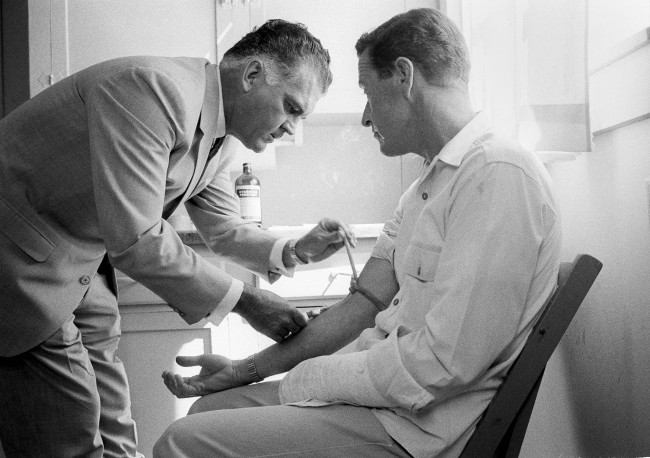LSD Reduces Anxiety In Terminally Ill Patients
THE Journal of Nervous and Mental Disease presents Peter Gasser’s work with LSD. The paper, called <” href=”http://journals.lww.com/jonmd/Documents/90000000.0-00001.pdf”>Safety and Efficacy of Lysergic Acid Diethylamide-Assisted Psychotherapy for Anxiety Associated With Life-threatening Diseases, and researchers concluded that when terminally ill patient were tested with the drugs their anxiety”went down and stayed down”.
Would you take LSD, or approve its use on a loved one? David Nutt, the former UK government drugs expert, said in Nature Reviews Neuroscience – “Effects of Schedule I drug laws on neuroscience research and treatment innovation” was evidence of the worst case of scientific censorship since the Catholic Church banned the works of Copernicus and Galileo”.
He says drugs, including what tabloids call mind-bending substances, could be beneficial to mankind.
Small clinical studies of MDMA, which was originally used in the USA in the 1970s to improve communication in psychotherapy sessions, suggested that it could play a highly beneficial role in the treatment of PTSD patients. The paper’s authors said the drug could also help with “end of life anxiety” and couples therapy”…
LSD, meanwhile, was widely researched in the 1950s and 1960s, with more than 1,000 papers investigating outcomes for more than 40,000 patients, with evidence suggesting that the drug might be an effective treatment for alcoholism, before bans on the drug around the world ended further research.
You can read more of his views in the book Drugs Without the Hot Air.
The NYT takes up the story of Gasser’s research. One of his patients is talking:
“I had what you would call a mystical experience, I guess, lasting for some time, and the major part was pure distress at all these memories I had successfully forgotten for decades,” Peter said. “These painful feelings, regrets, this fear of death. I remember feeling very cold for a long time. I was shivering, even though I was sweating. It was a mental coldness, I think, a memory of neglect.”
He was also doing something with those sensations, something he had almost never done before. He was talking about them. “It surprised me,” Peter said. “I didn’t know I was talking away until Dr. Gasser made me notice.”
After about two months of weekly therapy, the eight participants who received full doses of LSD improved by about 20 percent on standard measures of anxiety, and the four subjects who took a much weaker dose got worse. (After the trial, those patients were allowed to “cross over” and try the full dose.) Those findings held up for a year in those who have survived.
Posted: 8th, March 2014 | In: Reviews Comment | TrackBack | Permalink



